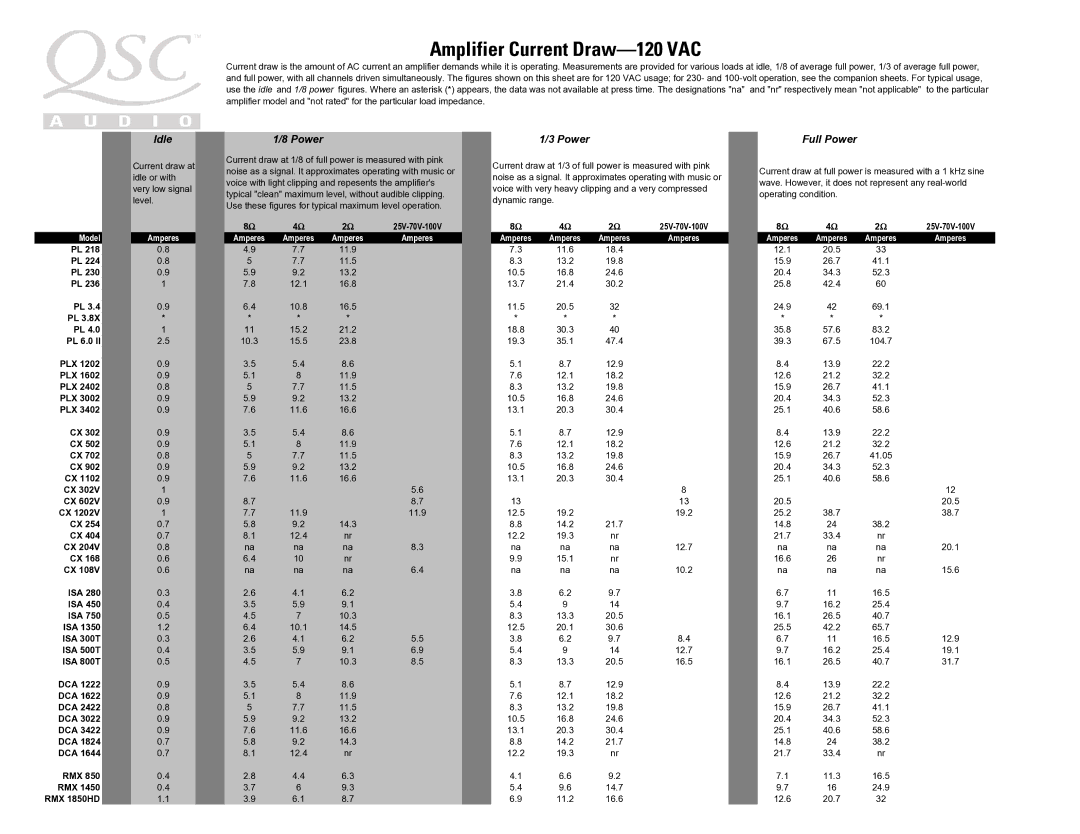120 VAC specifications
QSC Audio is a renowned leader in the audio industry, known for its commitment to innovation and high-quality sound solutions. One of the pivotal offerings in their extensive portfolio is the QSC 120 VAC series, a lineup designed to meet the demanding needs of professional audio applications.The QSC 120 VAC is engineered for both performance and reliability, making it ideal for installations in venues ranging from auditoriums to performance spaces. One of its standout features is its exceptional power handling capability, allowing users to drive loudspeakers with clarity and dynamic range. This series provides robust output while maintaining fidelity, ensuring that every note is reproduced accurately.
Another defining characteristic of the QSC 120 VAC is its advanced Class D amplifier technology. This technology not only contributes to a lightweight and compact design but also enhances energy efficiency. Class D amplifiers are known for generating less heat compared to traditional Class A/B designs, which means that the QSC 120 VAC can operate longer without the need for extensive cooling systems. This is particularly beneficial in large venues where space and ventilation might be limited.
The QSC 120 VAC also features comprehensive protection circuitry, safeguarding the amplifier and connected speakers from potential damage due to overheating, overloading, or short circuits. This assurance of longevity makes it a reliable choice for both permanent and touring setups.
Moreover, the series integrates seamless connectivity options, allowing for easy integration with various audio systems. Users can benefit from multiple input options, including both analog and digital formats, providing flexibility in connection with mixers and other audio equipment.
The design of the QSC 120 VAC is also notable for its user-friendly interface. Front-mounted controls and indicators simplify operation and monitoring, making it accessible even for those who may not be deeply familiar with audio engineering.
In sum, the QSC 120 VAC stands out as a powerhouse in the world of audio amplification, characterized by its innovative design, exceptional performance, and robust features. Whether used in a concert hall, corporate event, or theater setting, the QSC 120 VAC continues to set a standard for excellence in professional sound reinforcement.

